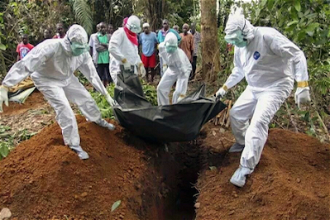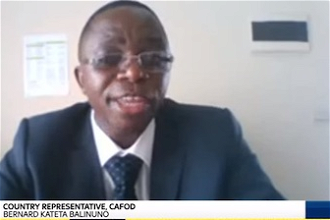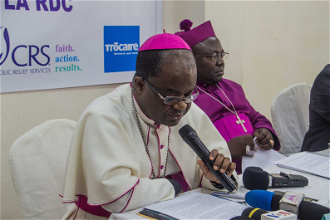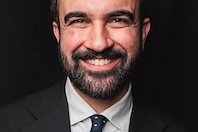Family Synod: Fourth and Fifth General Congregations
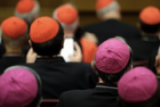
General debate continued during the fourth general Congregation, following the order of the Instrumentum Laboris. The theme was “The Pastoral Program for the Family: Various Proposals Underway” (Part II, Chapter 1).
Firstly, the link between the crisis of faith and the crisis of the family was underlined: it was said that the first generates the second. This is because faith is seen mostly as a set of doctrinal mores, whereas it is primarily a free act by which one entrusts oneself to God. This gave rise, among other things, to the suggestion of devising a “Vademecum” dedicated to the catechesis of the family, so as to strengthen its evangelising mission. Furthermore, the weakness of the faith of many baptised persons was underlined; this often leads to the marriage of couples who do are not appropriately aware of what they are undertaking.
Secondly, a great challenge facing families today was mentioned: that of the “dictatorship of unitary thought” that aims to introduce into society those countervalues that distort the vision of marriage as a union between a man and a woman. The crisis of values, atheist secularism, hedonism, and the ambition of power destroy families today, distorting it, weakening people and consequently rendering society fragile. It is therefore important to recover in the faithful the awareness of belonging to the Church, as the Church grows by attraction and the families of the Church attract other families.
For its part, the Church, an expert in humanity, must underline the beauty and the need everyone has for the family, as it is indispensable. It is necessary to reawaken in humanity the sense of belonging to the family unit. In addition, as a reflection of God’s love, which is never an isolated love, the family opens one to relationships and bonds with others, thus becoming the foundation for society.
Mention was also made of the link between priests and families: they accompany families in all the most important stages of their lives, sharing in their joys and difficulties; families, in turn, help priests to experience celibacy as a full and balanced emotional life, rather than as a sacrifice. In addition, the family was defined as the “cradle of vocations” as it is precisely within the domestic walls, in common prayer, that the call to the priesthood is frequently heard.
A further link that was underlined is that between baptism and marriage: without a serious and in-depth Christian initiation, the meaning of the sacrament of marriage is diminished. Therefore, it is to be emphasised that Christian marriage cannot be seen solely as a cultural tradition or a social need, but rather must be understood as a vocational decision, undertaken with suitable preparation that cannot be improvised in a few meetings, but must be carried out over a period of time.
Attention then turned to how work affects the dynamics of the family: these are two dimensions that must be reconciled, through increasingly flexible working hours, new contractual models, and attention to geographical distances between home and work. Furthermore, technology can lead to work being brought home, making family dialogue difficult.
Numerous interventions, especially in relation to Africa, drew attention to the many challenges the family must face in this continent: polygamy, levirate marriage, sects, war, poverty, the painful crisis of migration, international pressure for birth control, and so on. These are problems that undermine family stability, placing it in crisis. In the face of such challenges, it is necessary to respond with in-depth evangelisation, able to promote the values of peace, justice and love, an adequate promotion of the role of women in society, thorough education of children and the protection of rights for all victims of violence.
In the hour dedicated to open discussion – from 6 to 7 pm – attention returned to the need for a new language in the proclamation of the Gospel, with particular reference to the new media technologies. With regard to the indissolubility of marriage, it was highlighted that today it would appear that the law is opposed to the good of the person. In reality, the truth of the conjugal bond and its stability is inscribed within the person, and therefore it is not a question of setting the law and the person in opposition to each other, but rather of understanding how to help the person not to betray his or her own truth.
Further reflection was proposed in relation to families who have not received the gift of children despite wishing for them, and those in regions affected by the Ebola virus.
Finally, the image of the Church as light was recalled, in the hope that this may be not only the light of a beacon, that remains constant and illuminates from afar, but also a torch, or rather a “soft light” that accompanies humanity on its path, step by step.
The Pontifical Council for the Family donated to the members of the Synod a copy of the extensive Enchiridion on the family.
Fifth General Congregation: critical situations within the family, the question of mixed marriages, and mercy and truth for the divorced and remarried.
In the fifth general Congregation, which the Holy Father did not attend on account of the general audience, the general debate continued on the themes outlined in the Instrumentum laboris: “The Pastoral Challenges of the Family (Part II, Chapter 2). The Crisis of Faith and Family Life / Critical Situations within the Family / External Pressures on the Family / Special Situations”.
First and foremost, the debate focused on the Church in the Middle East and in North Africa. Both exist in difficult political, economic and religious situations, with serious repercussions on families. Where there are laws that impede the reunification of families, poverty leads to migration, where there is religious fundamentalism and Christians do not enjoy equal rights with Muslim citizens, there are often difficult problems for families resulting from mixed marriages.
Indeed, in these contexts, interreligious or so-called “mixed” marriages are present and on the increase in these contexts. It was said that the challenge of the Church is therefore to understand what form of catechesis may be offered to children born of such a union and how it is possible to respect to the unknown situation of those Catholics who, united in mixed marriages, wish to continue to practice their religion. Such couples, it was said, must not be neglected and the Church must continue to take care of them. A further challenge is also represented by those Christians who convert to Islam in order to marry: also in this case, suitable reflection is necessary.
The question is not simply interreligious, but at times also ecumenical: there are cases in which a Catholic who has contracted a canonical marriage and is not able to obtain a declaration of nullity passes to another Christian confession, remarrying in a Church which permits this. In any case, without prejudice to the shared patrimony of faith, the need to follow the path of mercy in difficult situations was underlined.
With regard to the question of divorced and remarried persons, it was highlighted that the Synod must certainly take the issue into consideration, with the prudence required for important matters, but must also combine the objectivity of truth with mercy for the person and for his or her suffering. It is necessary to remember that many faithful find themselves in this situation through no fault of their own.
Mention was made of the commitment of the Holy See, whose voice is always heard in the defence of families at all levels – international, national and regional – with the aim of emphasising its dignity, its rights and duties, and always noting that, as Benedict XVI said, her “no” is in reality a “yes” to life. Therefore, it was underlined that the Church must combat the educational and religious silence in families, as there is no place for hesitation and greater commitment to witnessing the Gospel is needed. Creativity in pastoral ministry is always necessary.
The Assembly went on to reflect on the indispensable contribution of the lay faithful to the proclamation of the Gospel in the family: in particular, the young, ecclesial movements and new communities provide a service of vital importance, carrying out a prophetic mission that runs counter to the current of our times. Listening and believing in the laity, therefore, is shown to be essential, as it is in them and with them that the Church may find the answers to the problems of the family.
Another theme taken into consideration was that of the precariousness of work and unemployment. The distress caused by the lack of a secure job creates difficulties within families, along with the poverty that often prevents families from having a home. Furthermore, a lack of money often leads to it becoming “deified” and to families being sacrificed on the altar of profit. It is necessary to re-emphasise that money must serve rather than govern.
There was further reflection on the need for greater preparation for marriage, also with special attention to emotional and sexual education, encouraging a true mystical and familiar approach to sexuality. The great contribution of grandparents to the transmission of faith in families was then recalled and it was highlighted how important it is for the family unit to welcome the elderly with solidarity, care and tenderness. The same care must be reserved to the sick, to overcome the “throwaway culture” that Pope Francis frequently warns against.
Source: VIS



